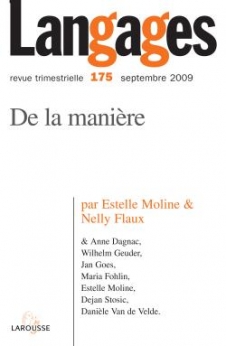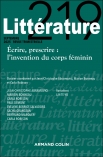
Langages n° 175 (3/2009)
Pour acheter ce numéro, contactez-nous
Recevez les numéros de l'année en cours et accédez à l'intégralité des articles en ligne.
The starting point of our article is an analysis of the expression of “manner” in French and Dutch in order to stablish a comparison between these two languages. In French here is a clear relationship between qualificative djectives and adverbs on – ment who derive from them, but ne can also establish that facultative subject complements nd facultative object complements (Les enfants écoutent attentifs, Elle ouvrit tout grands ses yeux purs.) have a potential “manner” interpretation. On the other hand, a number of adverbial adjuncts of manner can qualify the subject or the object and are very close to the facultative subject and object complements. This means that these constructions can sometimes be used one for another (La neige tombe abondamment/ abondante ; Il a planté ses thuyas trop serrés/serré), or that very fine nuances can be expressed (Il part joyeux ≠ il part joyeusement). In Dutch, however, adjectives and adverbs have the same morphology and can be used indifferently. Is it, then, possible to listinguish the facultative subject/object complements (bepaling van gesteldheid) from the adverbial adjuncts of manner (bijwoordelijke bepaling van hoedanigheid) and to express the same nuances as in French ? And if it is possible, how does it works ?

